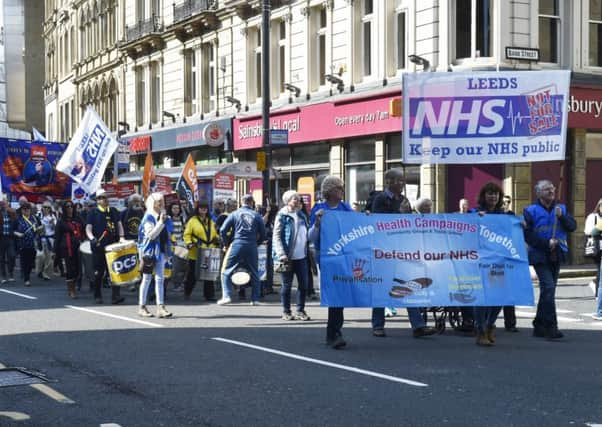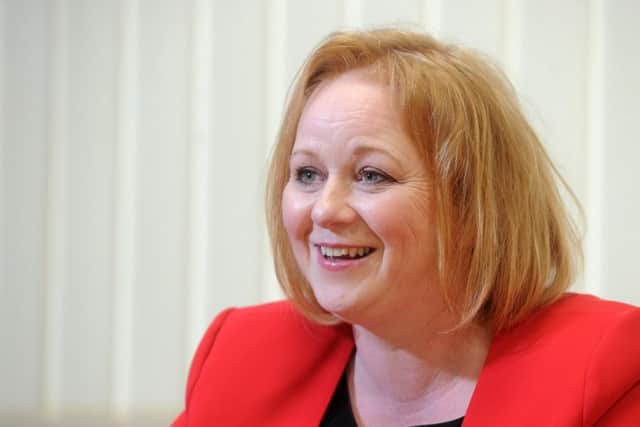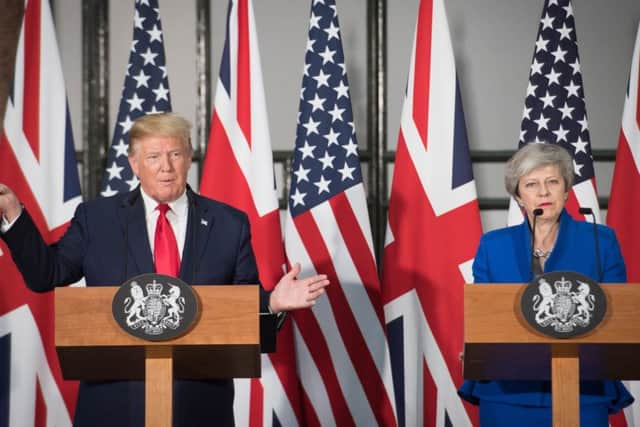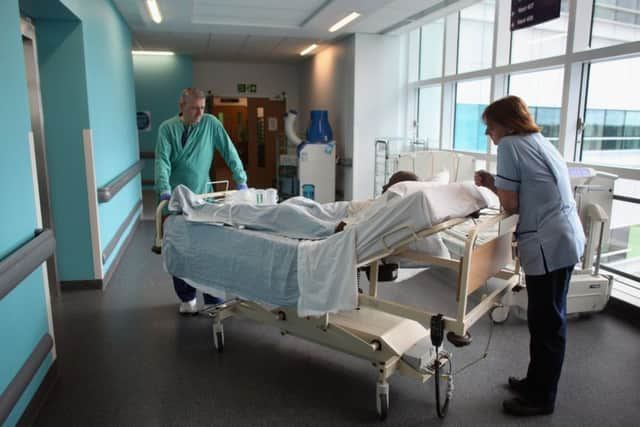Why the NHS must come before any UK-US trade deal between Boris Johnson and Donald Trump – Judith Cummins


Last week the Government published a summary of responses to their consultation on trade negotiations with the US, Australia and New Zealand, as well as potential accession to the comprehensive and progressive agreement for trans-Pacific partnership.
Advertisement
Hide AdAdvertisement
Hide AdOver 600,000 people responded, with an overwhelming number of those responses calling explicitly for protections for the NHS in trade deals.


The British public are absolutely clear: they do not want the NHS to be bargained away as part of a trade deal, they do not want companies to have the right to sue our Government for decisions taken in the interests of public health, and they do not want drug prices to be pushed up by American pharmaceutical giants.
Labour firmly agree with that. We are extremely proud of the Labour-created NHS and we know how important it is to the people of the United Kingdom. We will always defend the principles of universality and the NHS being free at the point of use.
Advertisement
Hide AdAdvertisement
Hide Ad

A few weeks ago, the President of the United States said the NHS would be “on the table” in any US-UK trade deal. A few hours later, perhaps after some encouragement from the current Prime Minister (Theresa May), he appeared to row back somewhat.
Now we are entering a brave new world, with a new Prime Minister (Boris Johnson) who has repeatedly stated that he regards concluding a quick trade deal with the US as an absolute priority.
So this is a timely debate and I want to mention a number of areas where aspects of trade deals could threaten the NHS if proper safeguards and guarantees are not put in place.
Advertisement
Hide AdAdvertisement
Hide AdFirst is the risk that trade deals could increase and consolidate privatisation of the NHS. Services in free trade agreements typically include provisions that lock in liberalisation measures, such as privatisation.


There is genuine concern that trade agreements could force us to lock in market liberalisation of the NHS, so that future Governments are unable to bring these services back in house.
Under this, the UK would have to explicitly opt out all healthcare and related services. If we did not, it could be difficult to ever bring privatised services back in house. In my area of Bradford, I am fighting alongside Unison to stop the creation of a wholly-owned company for NHS staff such as cleaners and porters. If this goes ahead, and we agree a trade deal without the correct exceptions, bringing those services back into the NHS will be even more difficult and complex.
A potential deal with the US is of major concern in respect of drug pricing. Last year, President Trump accused the rest of the world of ‘freeloading’ on the US, resulting in high drug prices in the US. In particular, he blamed countries that “use socialised healthcare to command unfairly low prices from US drug makers”.
Advertisement
Hide AdAdvertisement
Hide AdThe NHS purchases drugs in significant volumes and therefore uses its bargaining power to set the price at the lowest possible levels. When the Office of the US Trade Representative published an outline of negotiating priorities for a US-UK trade deal in February, it included in a section entitled “Procedural Fairness for Pharmaceuticals and Medical Devices”.
The threat should be evident. The US Secretary of Health and Human Services put it even more starkly when he said that the US would “pressure” other countries through trade negotiations,“so we pay less, they pay more”.
We must recognise the very real risk that, in the rush to complete a trade deal with the US, it will happen — a case of marrying in haste and repenting at leisure. In negotiations with Australia and New Zealand, the US has already tried to force changes to their medicines pricing policies. In those cases, the US backed down to achieve other trade objectives, but that is highly unlikely to be the case with the UK, given the size and scope of the NHS’s purchasing power.
That is why Parliamentary scrutiny of trade agreements is critical. We in the Labour party will not allow our NHS to be sold off as the price of a quick trade deal.
Advertisement
Hide AdAdvertisement
Hide AdThe NHS is more than a service; it is one of our proudest national institutions, and we must defend it with all we have.
Judtih Cummins is the Labour MP for Bradford South. She spoke in a Parliament debate on the NHS and future trade deals – this is an edited version.